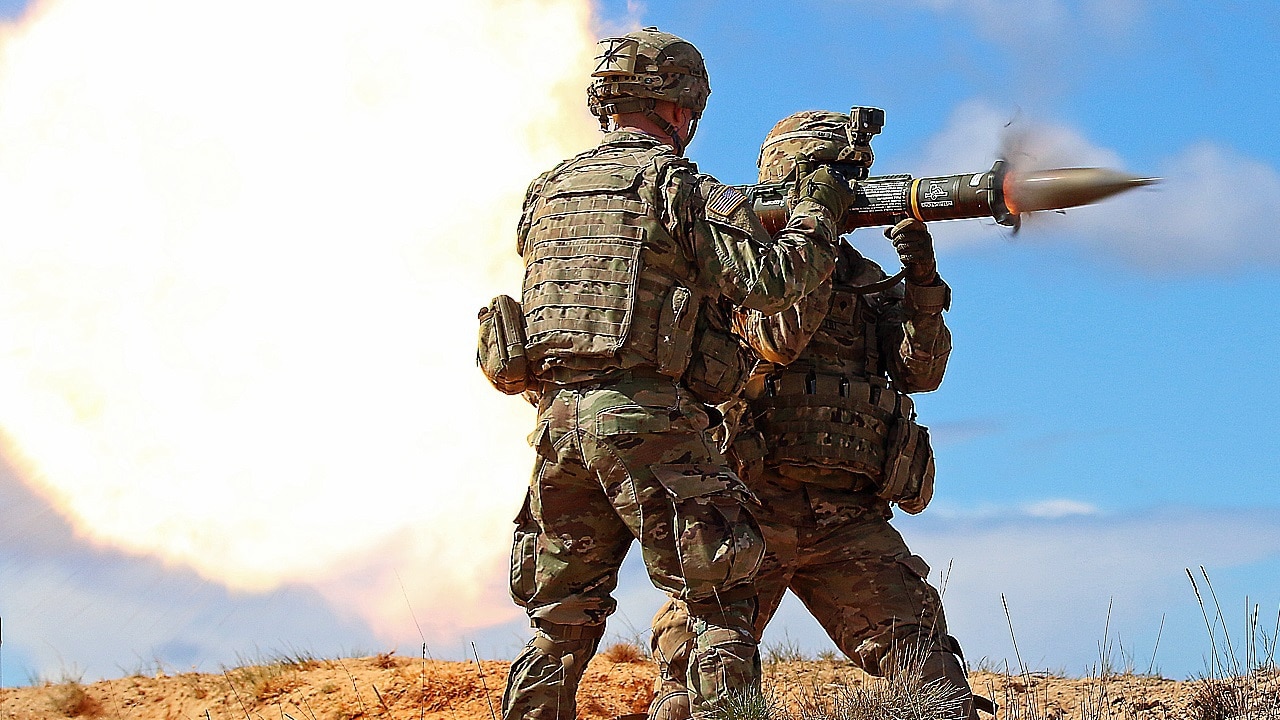Ukraine Takes Control of Lyman After Russia “Annexes” Region: Russia’s proclaimed annexation of Donetsk, Luhansk, Zaporizhzhia, and Kherson has fallen flat for a multitude of reasons. Not only is the annexation not recognized by NATO or Ukraine, but Russian forces didn’t have full control of all these regions, to begin with.
Russian forces may be able to claim control of the vast majority of Luhansk Oblast for the time being, but in neighboring Donetsk Oblast, Russian forces are still being pushed out by Ukrainian forces using NATO-supplied weapons. This was made even more evident over the weekend after Ukrainian forces surrounded Russian troops stationed in the Ukrainian city of Lyman, only to successfully force those Russian soldiers to retreat.
“Redeployed to Body Bags”
The Ukrainian Armed Forces celebrated the victory in Lyman this weekend with a tweet, mocking Russian forces for their retreat.
“We thank the ‘Ministry of Defense’ of Russia for successful cooperation in organizing the ‘Izyum 2.0’ exercise,” the tweet reads.
“Almost all Russian troops deployed to Lyman were successfully redeployed either into body bags or into Ukrainian captivity. We have one question for you: Would you like a repeat?”
The tweet appeared to be a reference to Russia’s claim that troops in the region were being redeployed to “more favorable lines of defense,” a tacit admission that Russian forces could no longer hold their ground in Lyman.
Stoltenberg Celebrates Ukraine Capture of Lyman
Following Ukraine’s capture of Lyman, NATO Secretary-General Jens Stoltenberg praised the efforts of the Ukrainian military and reaffirmed NATO’s commitment to helping Ukraine defend its territory.
“We have seen that they have been able to take a new town, Lyman, and that demonstrates that the Ukrainians are making progress, are able to push back the Russian forces because of the courage, because of their bravery, their skills, but of course also because of the advanced weapons that the United States and other allies are providing,” Stoltenberg said during an interview on NBC’s “Meet the Press.”
The NATO leader added that the best way to stop Russia’s annexation of four regions of Ukraine, which has not yet translated into Russia taking full control of the regions, is for NATO allies to continue providing support to Ukraine.
Stoltenberg was, however, less committal about the prospect of Ukraine being accepted as a member of NATO, explaining that acceptance into the military alliance can only occur when all 30 member states agree unanimously to allow it.
What the Experts Are Saying:
“While I think the war is far from over, Ukraine’s recapturing of Lyman is significant,” explained J. Paul Goode, an Associate Professor and McMillan Chair of Russian Studies at the Institute of European, Russian and Eurasian Studies, at Carleton University.
“In terms of Russia’s domestic politics, the loss of Lyman immediately following the staged-managed annexations (on September 30) is inconvenient for the Kremlin. Despite the attempt by Russia’s press to play down the loss of Lyman, Russia cannot now avoid the impression that it is unable to defend its newly annexed territories,” Goode noted.
“In turn, the loss of Lyman may further embolden hawks and nationalists who are critical of the Kremlin’s handling of the war, including the likes of Chechnya’s Ramzan Kadyrov. More subtly, the loss of Lyman could have a knock-on effect on the occupation infrastructure in eastern Ukraine, particularly if ongoing losses dissuade bureaucrats and public sector workers in Russia from taking up new jobs in occupied regions. Finally, one should not underestimate the perceived damage of such a loss to Russia’s credibility as a patron state to the occupied regions.”
Giles: What Ukraine’s Victories Really Mean
Keir Giles, a Russia expert now at the Conflict Studies Research Center explained that: “While the continuing advance of Ukrainian forces is welcome news, the significance of the ongoing liberation of occupied territories is far greater away from the battlefield than in Ukraine itself. The current advances will have two key impacts that are far more significant than the immediate tactical gains.
First, as with the Ukrainian autumn offensive overall, they are a clear demonstration to Kyiv’s Western backers that the war is not static, and that the fears of a protracted stalemate over the winter that were causing hesitation and doubt earlier in the year were misplaced because Ukraine is in a position to eject Russian forces from at least part of the territory they have seized.
The other immediate impact is demonstrating the farcical nature of Russia’s claims to have ‘annexed’ part of Ukrainian territory. Liberation of towns like Lyman the very next day after Putin claimed that they were Russian forever exposes how nonsensical Russia’s claims are for all the world to see.
Russia had laid claim to parts of Ukraine that it did not even control, and now is losing even areas that were in fact occupied by Russian forces. One major consequence is making it even harder for Russia to keep control of the story is that it tells its own population about the war, by making the gap between Putin’s fantasies and reality impossible to conceal.”
Jack Buckby is a British author, counter-extremism researcher, and journalist based in New York. Reporting on the U.K., Europe, and the U.S., he works to analyze and understand left-wing and right-wing radicalization, and reports on Western governments’ approaches to the pressing issues of today. His books and research papers explore these themes and propose pragmatic solutions to our increasingly polarized society.
Note: This has been updated since posting to include expert commentary and analysis from two world-class scholars.

